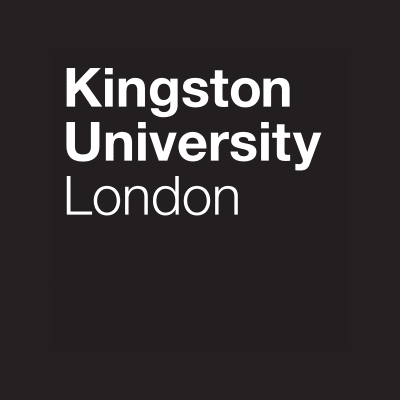
Doctor of Education
Kingston University

Key Information
Campus location
Kingston upon Thames, United Kingdom
Languages
English
Study format
On-Campus
Duration
4 - 6 years
Pace
Part time
Tuition fees
GBP 3,600 / per year *
Application deadline
Request info
Earliest start date
Sep 2024
* home: £3,600 | international: £8,100
Introduction
Why choose this course?
The EdD is a professional doctorate for education professionals in all fields and settings. If you are working as a teacher or manager in the early years, school, college, university, health and social care, library, prison or a museum or heritage service, this course will enhance your career. It will help you extend your professional understanding and develop advanced skills for research, reflection and evaluation.
The course combines contextual modules, critical self-reflection and independent research. Modules address issues of education professionalism, inter-professionalism, policy and practice, the philosophy and practice of educational research, the design of a research proposal and a substantial professional-relevant research project.
Our academic staff have extensive experience working with multi-agency partners, researching professionals at master and doctoral levels, and leading national and international research-active projects.
Reasons to choose Kingston University
- We offer a supportive and flexible learning environment to help busy professionals balance work and study.
- We provide research facilities, research training opportunities, and research-active experienced supervisors from the wider Faculty of Health, Science, Social Care and Education.
- We have strong relationships with a number of multi-agency partners, providing students with extensive networking opportunities.
Gallery
Admissions
Curriculum
What you will study
The programme combines contextual modules with independent research. Issues are introduced, reconsidered and further developed in successive modules towards the research proposal, which is the ‘gateway' to the independent Research Project, the 'capstone' to the EdD. In the first two years, the programme contains taught modules which address issues of education professionalism, interprofessional, policy and practice, the philosophy and practice of educational research and the design of a research proposal. These modules will prepare you to carry out a substantial professional-relevant research project in the following years.
The learning experiences are delivered over weekends using a day conference format at the Kingston Hill campus of Kingston University London.
Year 1
The focus in the first year is upon concepts, principles and practices which define professionalism, professional identities and professional practice in education-related contexts, and policy and practice in education, all of which would be valued by education professionals. You are required to attend four full learning weekends (Saturday and Sunday) in February, April, June and September. You are expected to attend the EdD Conference Day in November. The learning weekends are designed to provide face-to-face sessions (seminars and workshops) for each of the two modules offered in the first year.
The EdD Conference, which marks the end of the learning year, is not compulsory for first-year students, but it is recommended as an excellent opportunity for you to meet fellow students from other years and active researchers and learn from their experiences.
Core modules
- Education professionals as knowledgeable doers
- Policy transfer and analysis
Year 2
The focus in the second year is on theories of knowledge and research methods for educational and social research, and critical examination of ethical and practical issues in the context of professional practice which will support the development of a research proposal relevant to your professional role and setting. The development of the research proposal starts after the completion of the third module in Year 2 and can be continued and completed in Year 3. The research proposal is necessary to ensure your readiness for the Research Project.
In this second year, you are required to attend two full learning weekends (Saturday and Sunday) in February and April for the "Knowledge and Practice in Educational Settings" module, two Saturday learning events in July and September for "The Research Proposal" module, and the Conference Day in November.
Core modules
- Knowledge and practice in educational settings
- Research proposal (Start in Year 2 and continue in Year 3)
Year 3
In Year 3, the focus is on the completion of the research proposal and the preparation for undertaking your independent research; a substantial piece of professionally relevant and focused original research.
In the third year, you are required to attend Saturday events only taking place in February, April, July and September and the Conference Day in November. All events focus on providing opportunities for presentations and discussions of your research proposal, or work in progress on your research project, in a friendly and safe environment and getting useful feedback from peers and tutors.
Core modules
- Research proposal (Start in Year 2 and continue in Year 3)
- Research project
Final years
In Year 4 and the following years, you will engage in activities concerned with the generation and completion of the research project. Using opportunities for peer support, mutual critique, self-critique, and personal support through a supervision programme, you will learn and become able to conduct research, generate new knowledge and disseminate that knowledge to make an impact on professional practice.
In each of the final years, you are required to attend a minimum of three Saturday events, including the conference and are expected to present and discuss your work in progress with your peers and tutors. Your thesis will be submitted between years 4 to 6.
Core modules
- Research project
Please note
Optional modules only run if there is enough demand. If we have an insufficient number of students interested in an optional module, that module will not be offered for this course.
Program Tuition Fee
Career Opportunities
After you graduate
As a research professional in this programme, you will develop professional links and connections between research and education-related settings. Through researching critical questions and looking for answers to fundamental educational and social issues, you will deepen and enhance your employability skills to advance your existing career or develop a new one in an area of growing importance in modern society.